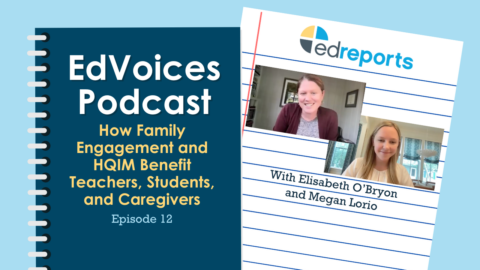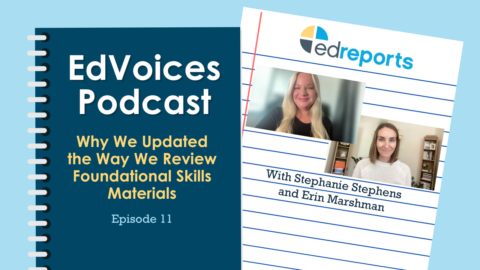5 Reasons Why EdReports Reviewer Trainings are Great Professional Learning
Educator Stephanie Stephens shares how EdReports trainings transformed her practice and helped her build a community.
Related Resources
video
Watch: How Family Engagement and HQIM Benefit Teachers, Students, and Caregivers
Megan Lorio and Elisabeth O’Bryon of Family Engagement Lab share tips and insights on how districts, teachers, and caregivers can unite around high-quality materials to help every student thrive.
news
EdReports to Expand Its Free Reviews to Pre-K Curriculum
Learn about EdReports' plans to review pre-K curriculum and provide free, "by-educator" reports to help preschool teachers get the materials they deserve.
video
Watch: Why We Updated the Way We Review Foundational Skills Materials
Early literacy educators Stephanie Stephens and Erin Marshman dive into updates to EdReports foundational skills review tools, what the field can learn from our recent report releases, and why quality materials are so crucial for students learning to read.


